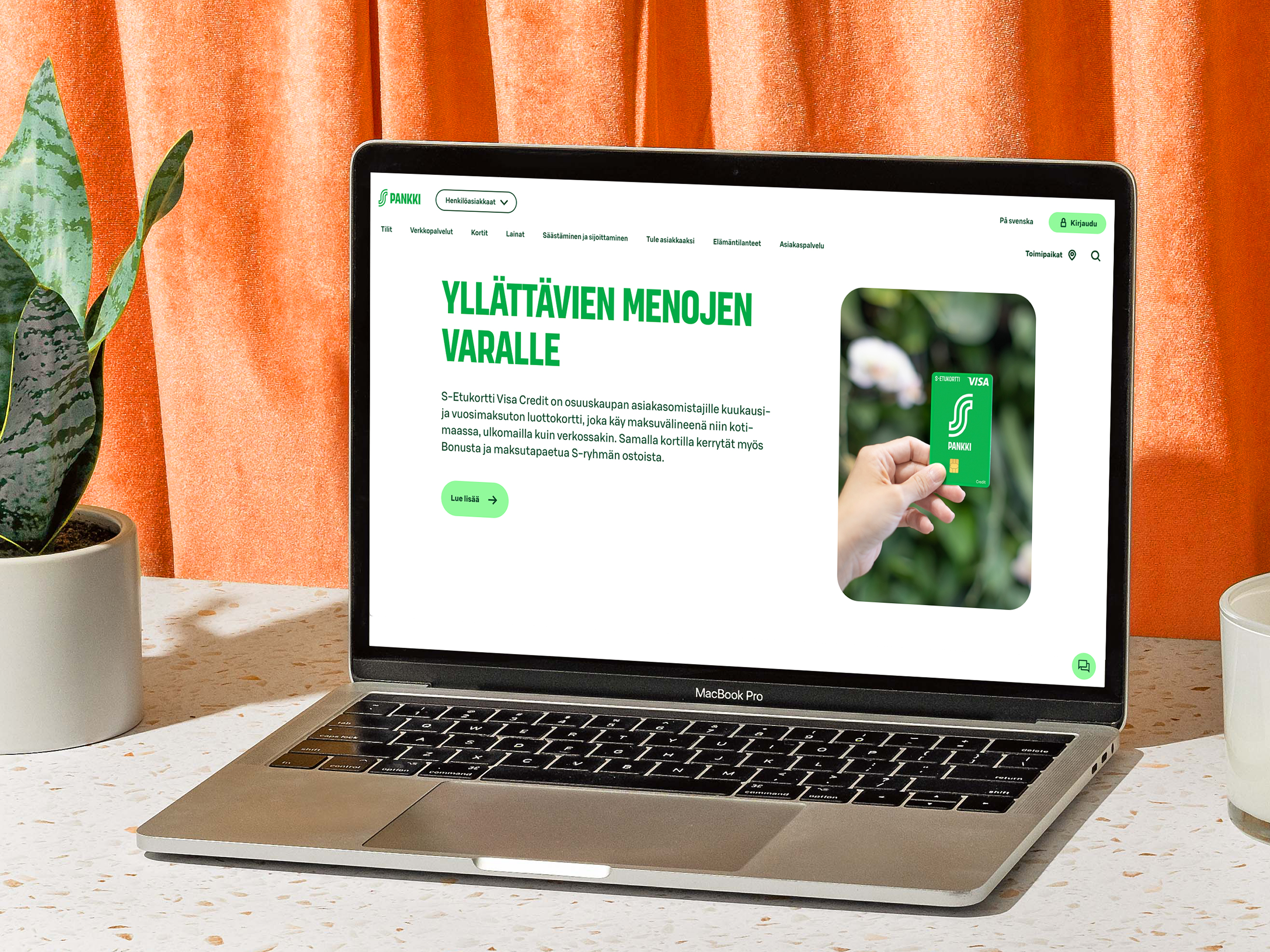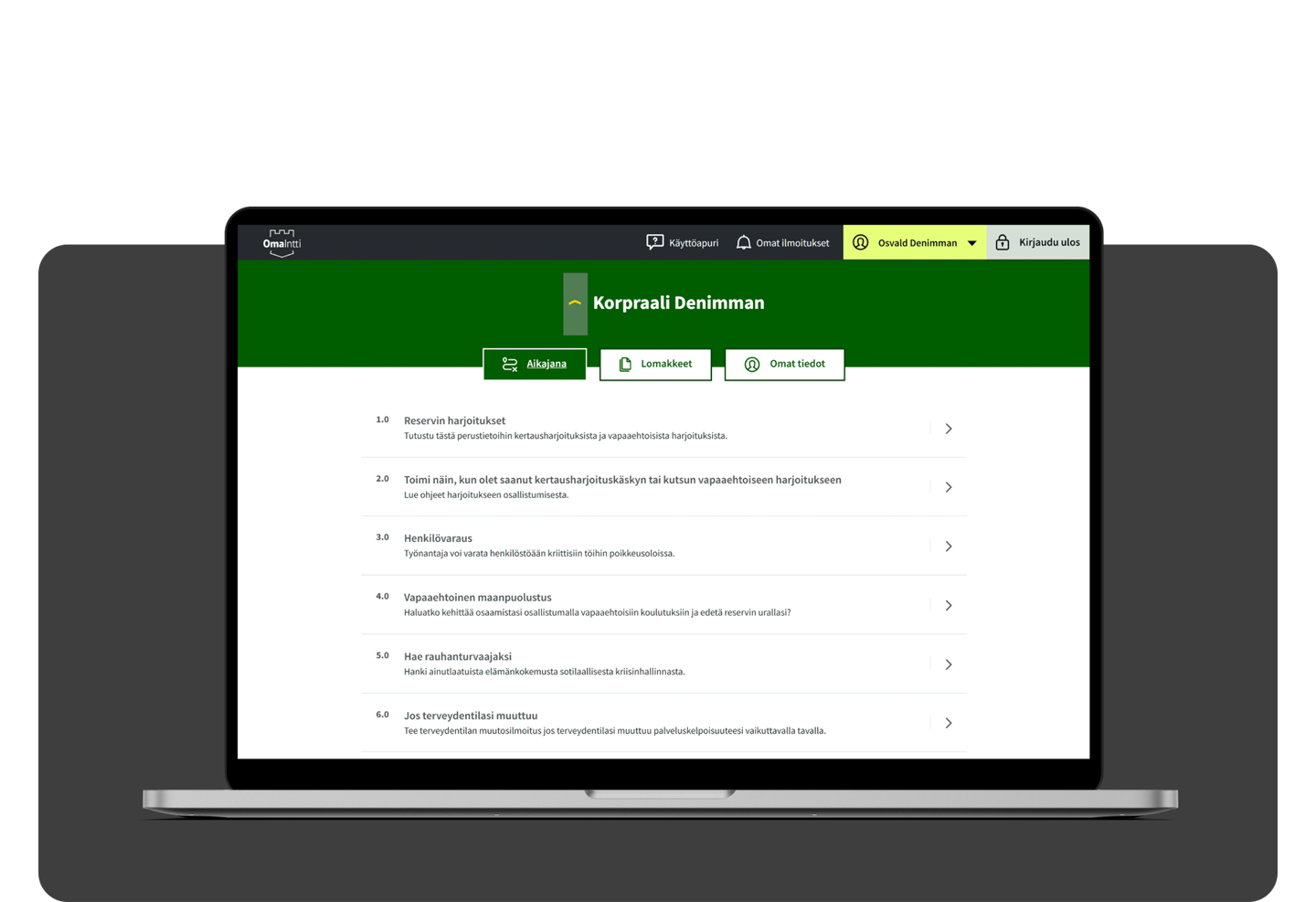A-Clinic Foundation
Bringing the Technology to the Modern Age
HiQ recently upgraded the existing technology and helped ensure that the service also remains secure and easy to use in the future.

The A-Clinic Foundation’s counselling service offers low-threshold help for addictions – whether the addiction is your own or a loved one’s. HiQ recently upgraded the existing technology and helped ensure that the service also remains secure and easy to use in the future.
The A-Clinic Foundation aims to prevent and reduce problems related to substance abuse and mental health issues. The foundation’s online services reach around 350,000 visitors every month. The counselling service, which has been in operation since 2000, is used by the AddictionLink, Nuortenlinkki, and Dopinglinkki online services. Pinja Rislakki, Development Coordinator of the A-Clinic Foundation, says that the counselling service employs a total of 13 professional counsellors and 4 experts by experience.
“All our counsellors are professionals who are paid for their work, which is why we can guarantee fast response times to questions. We have social workers, psychologists, pharmacists, sex therapists, community health nurses, and registered nurses who work daily in the field in question.”
In 2020, a total of 800 anonymous questions were sent to AddictionLink, with the most frequently asked questions relating to alcohol, drug, or medicine use. The 450 annual questions on the Nuortenlinkki youth online service were related to mental health, anxiety, and depression.
According to Rislakki, the pandemic has had the biggest impact on Nuortenlinkki, where the proportion of contacts from boys has increased from 14% in the previous year to 32%. The pandemic is also reflected in an increase in the number of self-destructive messages. Among other things, there were clearly more child welfare reports this year in comparison to previous years.
A typical counselling service customer sends on average one message, although there is no limit on the number of messages.
“We offer short-term counselling, guidance, and support. Often, the most important thing is that someone is listening. Not everyone needs to be referred for further treatment.”
The counselling service promises to respond to messages within 3 to 4 days. However, according to Rislakki, a response often comes in less time – even on weekends. The service is getting a lot of positive feedback from its users.
“We send a feedback questionnaire with each response. The feedback we receive feels really good because we see how important the service is for a lot of people.”
Bringing the Technology into the Modern Age
Rislakki says that the technology provider was put out to tender because the counselling service, set up in the early 2000s, was beginning to reach its technological limits.
“The old one worked, but after more than 20 years of changes and repairs and building on top of the old system, small cracks start to appear.”
In selecting a partner, the A-Clinic Foundation saw it as crucial that, even before submitting their bid, the people at HiQ demonstrated their knowledge of the topic.
“We got the feeling that they know what they are doing and also understand, through context, the social significance of this service.”
The A-Clinic Foundation’s modernised counselling service was built as a cloud service, which means that there are no limits on performance. The aim was to ensure the security of the service and to make it more mobile-friendly: around half of the respondents send their messages on a mobile device.
At the same time, the management interface was redesigned to make it easier to manage questions and direct them to the right professional. Reporting was also streamlined.
“Now, I can get reports directly from the system without having to request them from our web team. Monitoring and reporting will help make the relevance of the advisory service more visible to external parties.”
Appreciative, Active Dialogue
Rislakki describes the partners’ cooperation as close. There has been an ongoing dialogue with HiQ on the foundation’s wishes and needs for the development of the service.
“We have been actively asked questions, rather than merely assuming things. The people at HiQ clearly value our views, but at the same time have the courage to question them and suggest improvements.”
Mikko Sairio, the Project Producer at HiQ, says the collaboration is particularly meaningful for HiQ. It’s rewarding for the whole team and the company to be involved in developing a service that obviously helps people.
“We get to promote something that touches ordinary people and is genuinely good for everyone.
Sairio explains that, technologically, the project is about the technological revitalisation of a brittle service.
“Good care and continuous improvement offer protection against time. Sometimes, however, a system, a service, or a part of a system or service reaches a limit where replacement becomes cheaper than repair. This point was reached with the counselling service.”
According to Sairio, service design should always predict future needs and take them into account in system development. In modernising an old system, it is perfectly fine to rely on hindsight.
“We can see how the service has already been used and which tasks, for example, have placed an unnecessary burden on users. In kitchen terms, the old service acts as a conceptual ‘sourdough’ for the new service, allowing for a more delicious end product in one fell swoop.”
Are your digital services and their interfaces up-to-date compared to your benchmark? Do they still serve their purpose? Read more about keeping digital services competitive or contact us.


